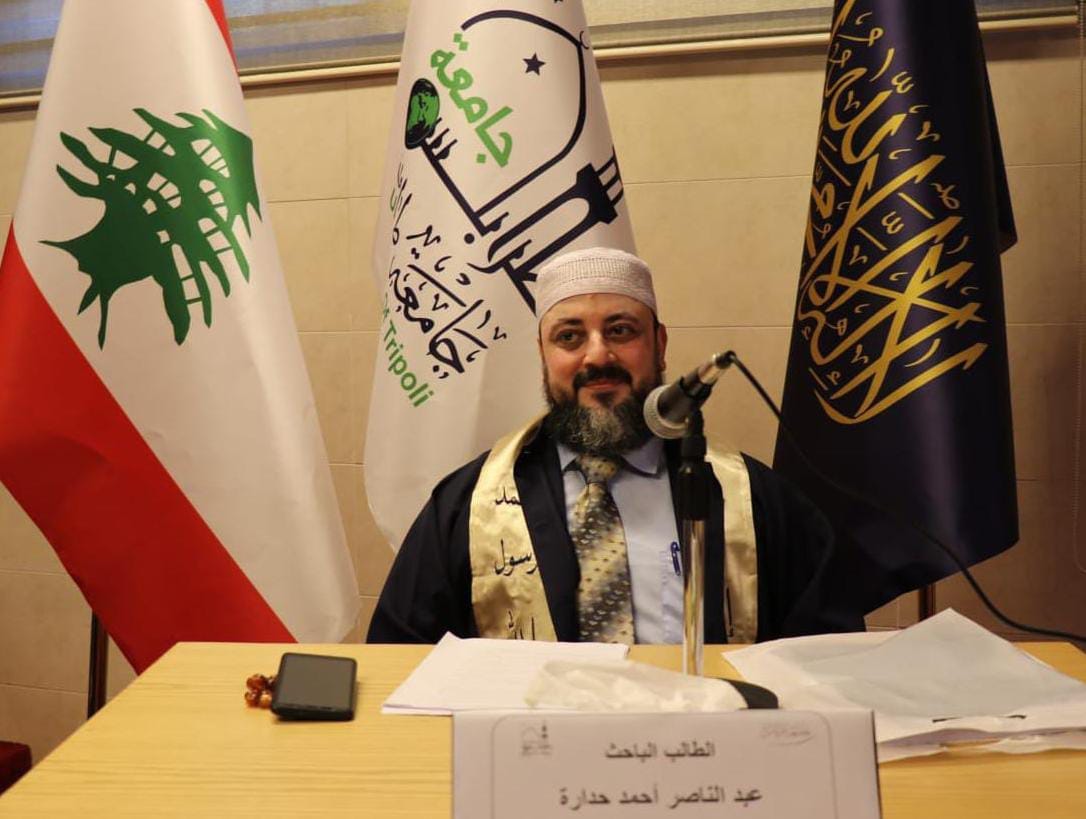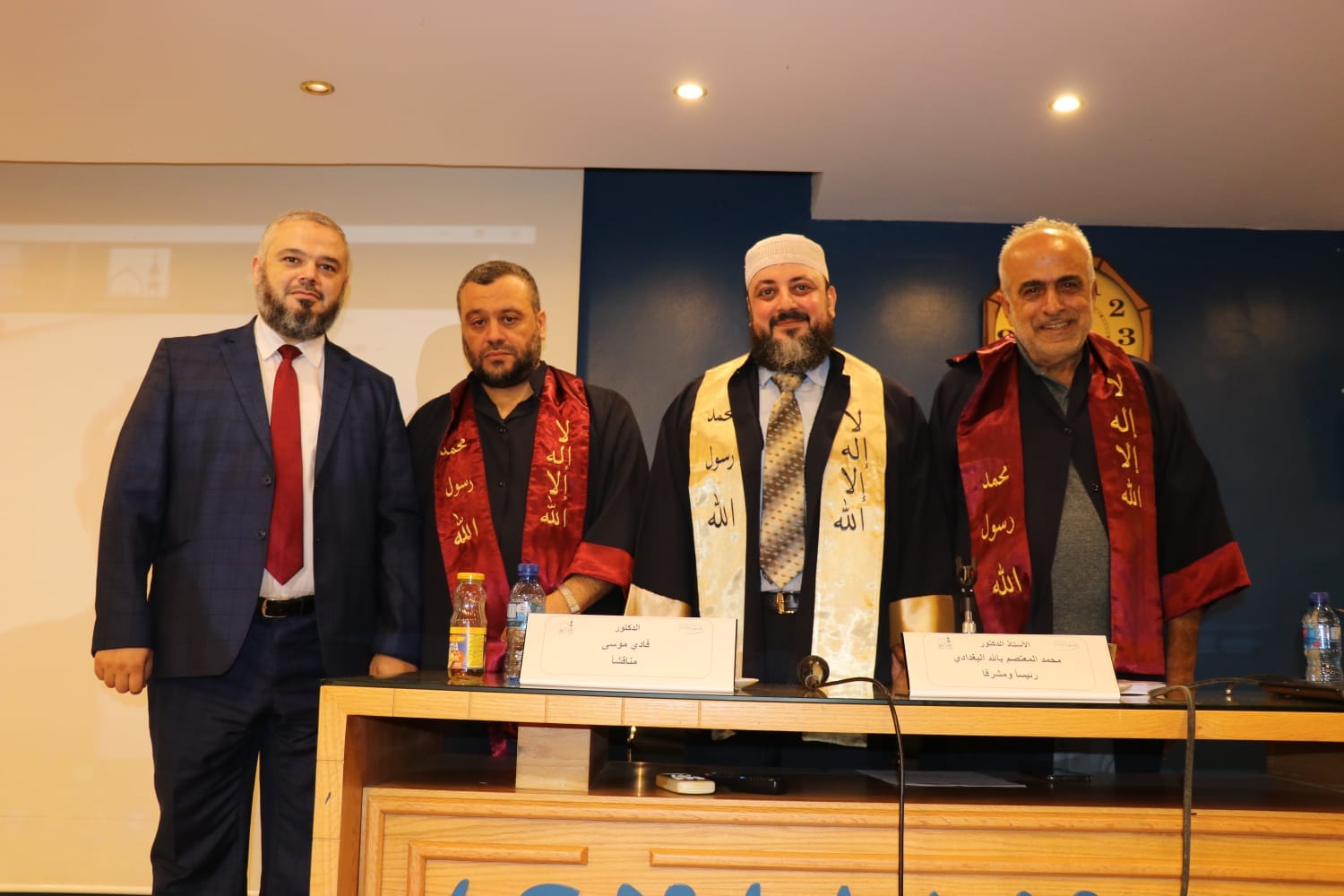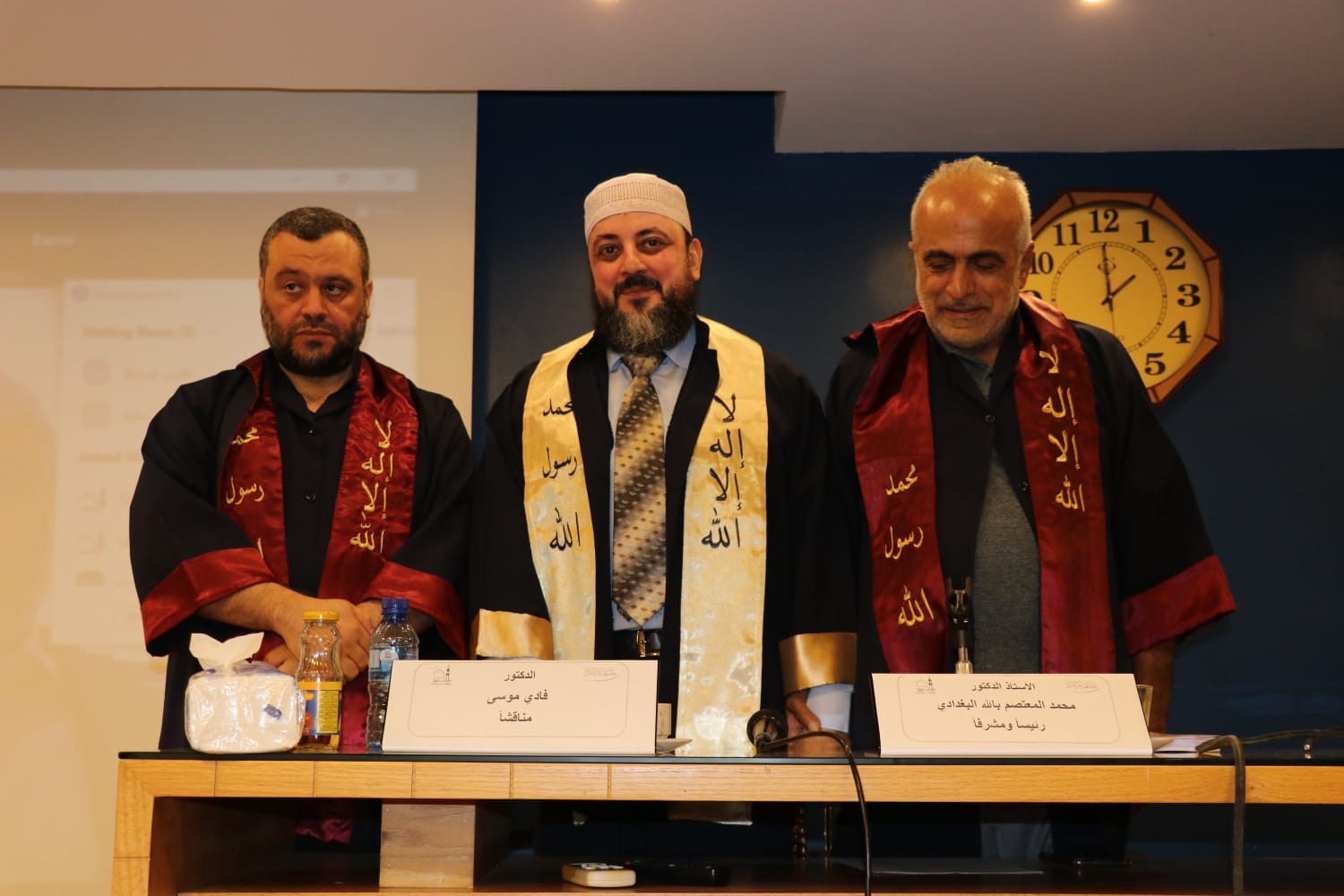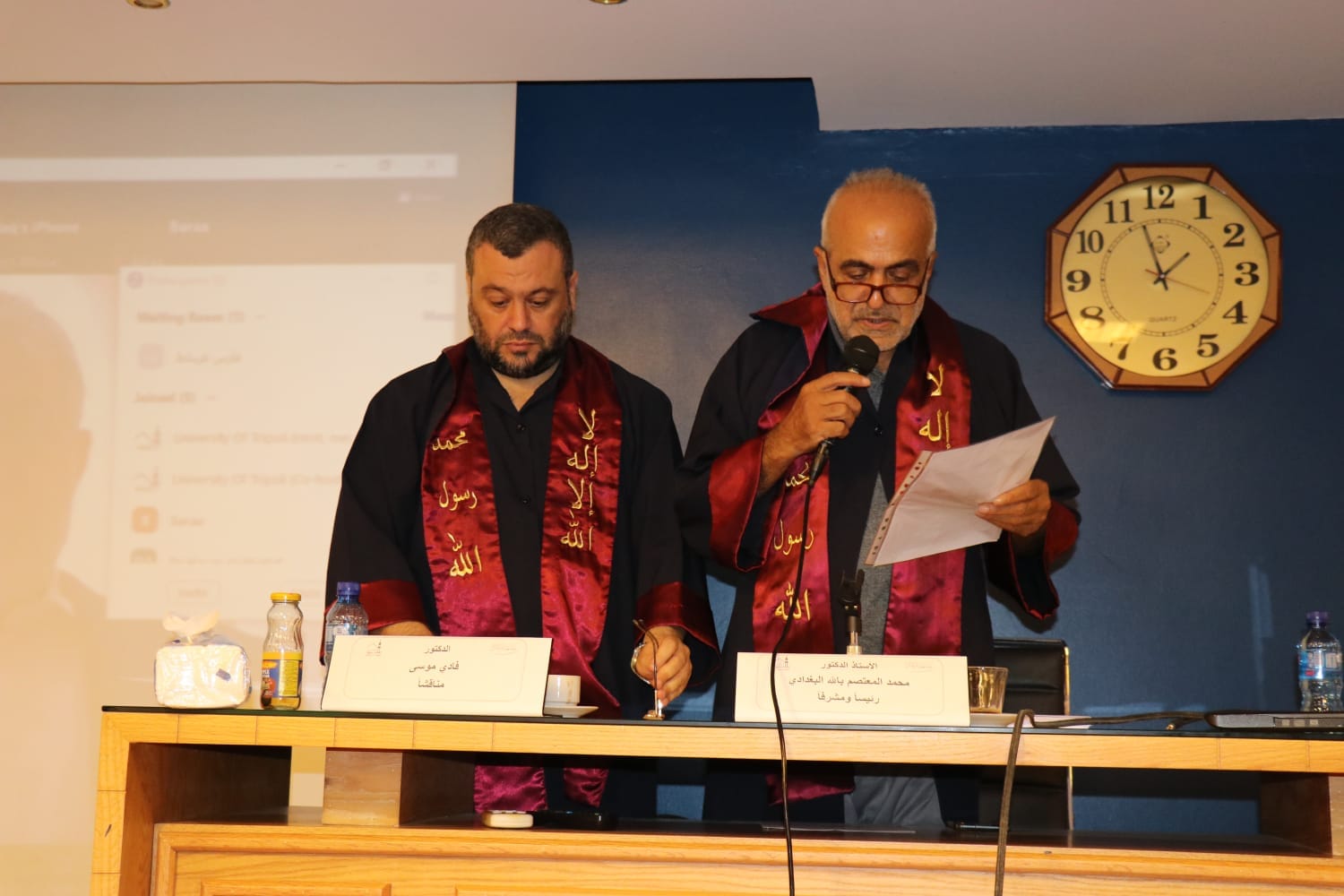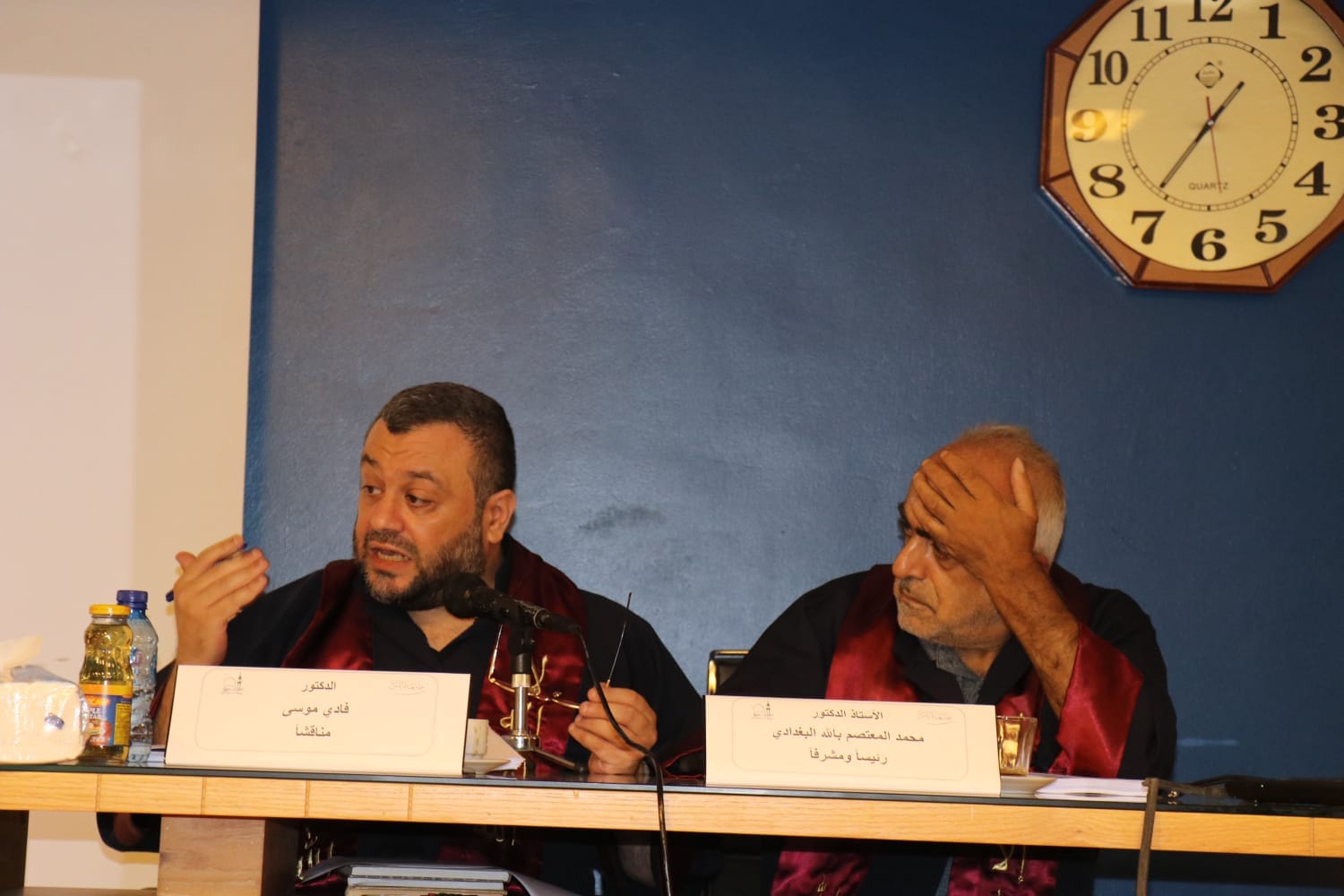| تصنيف الرسالة | الرسائل الجامعية, العقائد والأديان, رسائل الماجستير, رسائل قسم الشريعة |
|---|
| اسم الباحث | عبد النّاصر أحمد حدّارة | AbdulNaser Ahmad Haddara | Researcher Name |
| الجنسية | اللبنانية | Lebanese | Nationality |
| المرحلة | ماجستير | Masters | Stage |
| القسم | الشريعة | Shariaa | Section |
| الشعبة | العقائد والأديان | Beliefs and religions | Division |
| عنوان البحث | السَّببيّة وأَثَرُ الاختِلافِ فِيها (الأشاعرة والماتريديّة وابن تيمية نموذجًا) (بحثٌ تحليليٌّ نقديٌّ مقارن) |
Causality and the Impact of Divergence in It (The Ash’arites, the Maturidites, and Ibn Taymiyyah as a model ) (A Comparative Analytical and Critical Study | Research Title |
| تاريخ التسجيل | 8/6/2022 | 8/6/2022 | Registration Date |
| 9 ذي القعدة 1443 هـ |
Dhuʻl-Qiʻdah 9, 1443 AH
|
||
| مشرف أول | د. محمد المعتصم بالله البغدادي | Dr.Mohammad Elmohatsem Bellah Baghdadi | First Supervisor |
| مشرف ثان | Second Supervisor | ||
| لجنة المناقشة والحكم | أ. د. حسن الخطاف- د. فادي موسى | Prof. Hassan Khattaf, Dr.Fadi Moussa | Judging committee |
| الحالة | تمت المناقشة | Done | Status |
| تاريخ المناقشة | 5/7/2023 | 5/7/2023 | Defense Date |
| 17 ذي الحجة 1444 هـ |
Dhuʻl-Hijjah 17, 1444 AH
|
||
| عدد الصفحات | 140 | 140 | Number Of Pages |
| النتيجة | ممتاز | 90 % | % Excellent | 90 |
Result |
| دار النشر | Publishing House | ||
| تاريخ النشر | Publishing Date | ||
| خطة البحث | Thesis Plan | ||
| رابط يوتيوب | YouTube | ||
| إضافات | More information |
عدد المشاهدات - 164

| ملخص البحث |
|---|
| الحمد لله، والصلاة والسلام على رسول الله، وعلى آله وأصحابه ومن اهتدى بهديه وسار على نهجه إلى يوم الدين. أما بعد: لا يخفى على الدّارسين في مجال الفلسفة مبدأ السببيّة، الذي يُعدُّ من أشهر المبادئ التي بنى الفلاسفة عليها منهجهم الفكري. وفي مواجهة الفلاسفة القائلين بتأثير الأسباب بذاتها في مسبَّباتها وفق مبدأ السببيّة، الذي ترتّب عليه أن الخالق موجبٌ بالذات لا فاعلٌ بالاختيار، انبرى المتكلّمون لدارسة هذا المبدأ وبيان أوجه الفساد فيه وفيما ترتّب عليه. ومع دراسة المتكلّمين مبدأ السببيّة وبيان أوجه الفساد فيه، كما فعل الحجّة الغزالي في كتابه “تهافت الفلاسفة”، اختلفوا في نوع السببيّة؛ أي في نوع العلاقة التي تربط الأسباب بمسبَّباتها، التي يكون الله بموجبها فاعلًا بالاختيار لا موجبًا بالذات، فذهب فريق إلى القول بأن الله يخلق المسبَّبات بأسبابها، وهم الماتريدية وابن تيمية، وذهب فريق آخر إلى القول بأن الله يخلق الأسباب ويخلق عندها المسبَّبات؛ أي اقترانًا، وهو ما يُعرف بنظريّة العادة، وهم الأشاعرة. وهذا الاختلاف بين الفريقين في نوع السببيّة يعود لاختلافهم في الأصول والأسس التي بنيت عليها السببيّة؛ أعني بالأصول: تعليل أفعال الله والتحسين والتقبيح العقليَّين، الذي نتج عن هذا الاختلاف تباين في الآثار الكلامية التي تفرّعت عنه عند الفريقين وأعني بالآثار: الكسب والجبر. في هذه الدراسة العلميّة اجتهد الباحث أن يدرس هذا الاختلاف في السببيّة وأصولها وآثارها الكلامية، وما يترتّب على هذا الاختلاف من جواز التقاطع أو منعه بين السببيّة وأصولها وآثارها عند الفريقين، أعني به: التلفيق بين السببيّة وأصولها وآثارها عند الفريقين. والله المستعان |
| كلمات مفتاحية | نظرية العادة، مبدأ السببية، الحكمة والعلة الغائية، التحسين والتقبيح العقليين، الكسب، الجبر المتوسط، التقاطع أي العموم والخصوص الوجهي. |
| Thesis Abstract |
|---|
| Praise be to Allah, and may peace and blessings be upon the Messenger of Allah, his family, his companions, and those who follow his guidance and adhere to his path until the Day of Judgment.It is well known among scholars in the field of philosophy the principle of causality(Al-Sababia), which is considered one of the most prominent principles upon which philosophers have built their intellectual frameworks. In confronting the philosophers who assert the direct impact of causes on their effects according to the principle of causality, which implies that the Creator is necessarily acting by nature rather than by choice, theologians (Al-Mutakalimun) have risen to study this principle and elucidate its flaws and the consequences thereof. In their examination of the principle of causality and elucidating its flaws, as Al-Hujjah Al-Ghazali did in his book “The Incoherence of the Philosophers,” theologians diverged on the type of causality. That is, the nature of the relationship that connects causes with their effects, wherein Allah acts by choice rather than by necessity. One group posited that Allah creates the effects through their causes, represented by the Maturidites and Ibn Taymiyyah. Another group argued that Allah creates the causes and creates the effects along with them, not by them. This is known as The theory of habit (Al-Aada), represented by the Ash’arites. This difference between the two groups in the type of causality stems from their divergence in the principles and foundations upon which causality is built. By principles, I mean the justification of Allah’ s actions and the rational assessment of intrinsic goodness and badness. This difference resulted in varied theological consequences among the groups, particularly regarding the doctrines of acquisition (kasb) and determinism (jabr). In this scientific study, the researcher exerted effort to investigate this difference in causality, its origins, and its kalam effects, as well as the implications of this difference regarding the permissibility or prohibition of intersection between causation, its origins, and its effects, as perceived by the two groups. By intersection, I mean the integration between causation, its origins, and its effects among the two groups. And Allah is the source of assistance |
| Keybwords | The theory of habit, The principle of causality, Wisdom and Teleological cause ,Rational improvement and Rational ugliness, Doctrine of acquisition (Kasb), Intermediate determinism (Al-Jabr Al-Mutawassit), The intersection, i.e. the generality and the facial specificity. |


